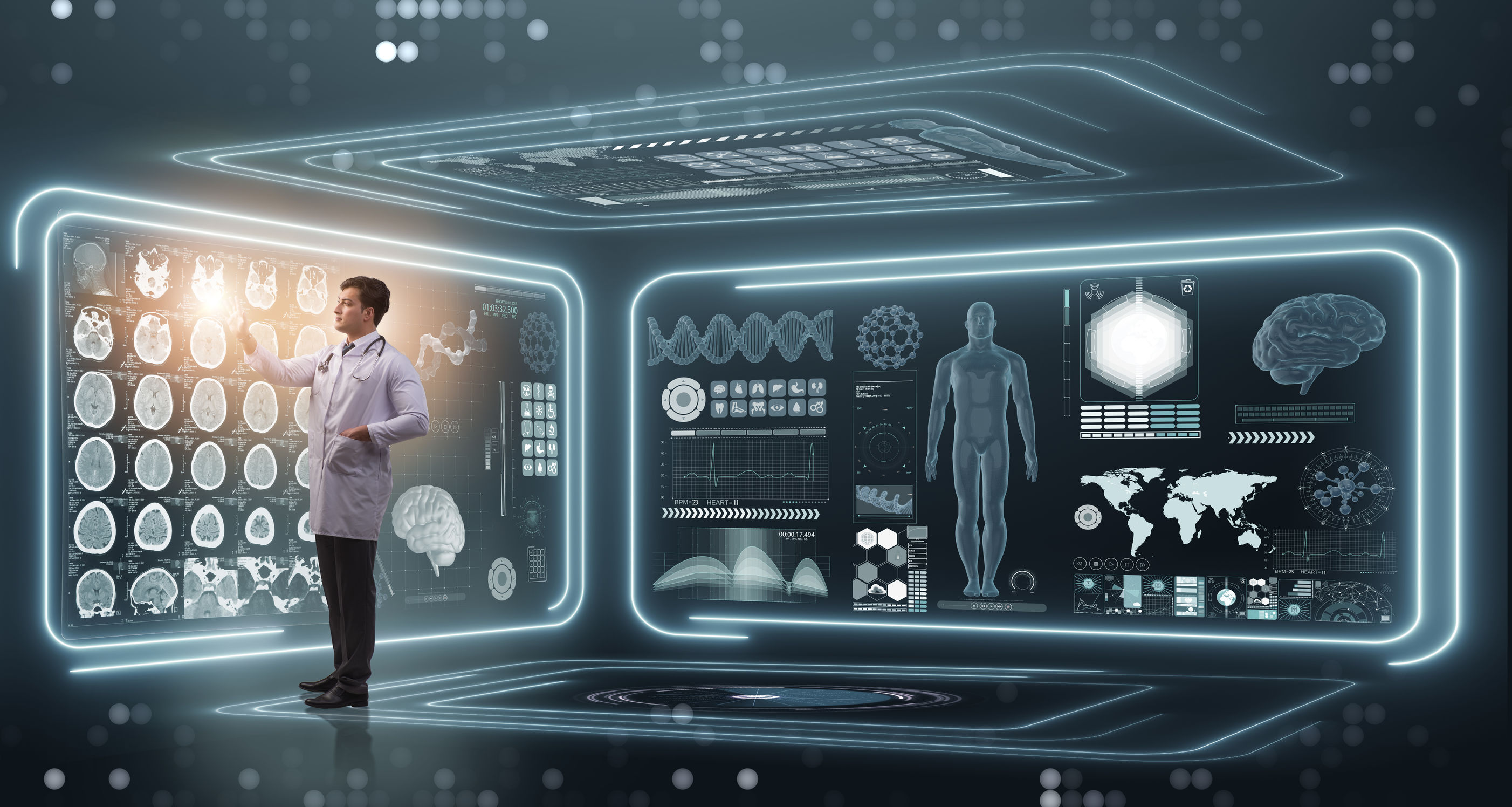With new technological advances making their way into the healthcare sector, will artificial intelligence be a blessing or a curse for this industry? Artificial intelligence in healthcare is a recent technological trend that is currently in the medical research and developmental stage. The medical industry hopes to incorporate AIs in various aspects of healthcare from the drug creation process to conducting drug trials, to name a few. Artificial intelligence has been incorporated in today’s healthcare technologies in multiple ways. Is this the future of healthcare?

Artificial Intelligence in Healthcare
Artificial Intelligence and Drug Creation:
Medical scientists are adamantly seeking technology to improve their process of drug creations, according to the Wall Street Journal. Artificial intelligence is utilized to help identify the effects of new drugs on patients. Various pharmaceutical companies have reported hopes of refining the drug-making process to ensure a more accurate procedure. The companies believe that through the use of artificial intelligence, they will be able to filter harmful and unnecessary chemical compounds that might otherwise make their way into drugs. In particular, Dr. Narain of Merck KGaA highlights how artificial intelligence will help doctors and medical scientists fight cancer by allowing precision and more data collection to be made. In fact, pharmaceuticals are working with these new technologies to help patients properly select clinical trials that they could participate in.
Artificial Intelligence and Genome Sequencing:
A Canadian genetic medicine company, Deep Genomics, is using artificial intelligence to increase genetic research in the medical and scientific field. Deep Genomics, which was started by University of Toronto professor Brendan Frey, aims to identify how learning about genome sequencing can help medical research. Frey’s company utilizes artificial intelligence to analyze genetic data in order to decode the information, according to Business Insider. Using AI in the field of genetics could unlock the Pandora’s Box of the world of genetics and aid researchers and physicians across the world to understanding and detecting various genetic mutations and/or diseases. In the near future, artificial intelligence will be able to not only access and analyze genetic information, but scientists hope to also analyze genetic behavioral patterns and how they work to activate and contribute to various medical conditions.
Artificial Intelligence and Patient Care:
Have you ever thought about how artificial intelligence programs such as Siri and Alexa could help you diagnose medical conditions? Various medical companies across the world have experimented with using artificial intelligence in healthcare to improve patient care. The idea of an “AI doctor” is a new development that UK health service provider Babylon Health is currently working to perfect. Medical companies have conducted various R&D to identify how artificial intelligence could be used to improve their patient care system through the implementation of a potential AI chatbot to help patients obtain better and more precise diagnoses of various medical conditions. According to Forbes, hospitals and companies in China have test-started this AI technology to improve diagnoses for lung cancer. If the creation of an “AI doctor” proves to be a successful technological advancement for the healthcare industry, this could revolutionize how patients receive care for medical conditions.
Artificial Intelligence and Emotional Diagnoses:
Strong emotional intelligence is a vital skill necessary to be able to detect symptoms with patients, particularly relating to mental health issues. Could artificial intelligence help patients uncover a diagnosis? Medical research companies have been working towards incorporating artificial intelligence symptoms similar to Alexa to identify patterns of inconsistent behaviors within users. Serving as an interactive system, researchers hope to be able to further implement technology in the healthcare industry. There’s also a hope to incorporate emotional intelligence into software. Researchers hope that by using emotional intelligence, more data could be collected and analyzed on a more personal level to provide better accuracy in the diagnosis experience.

Trackbacks/Pingbacks